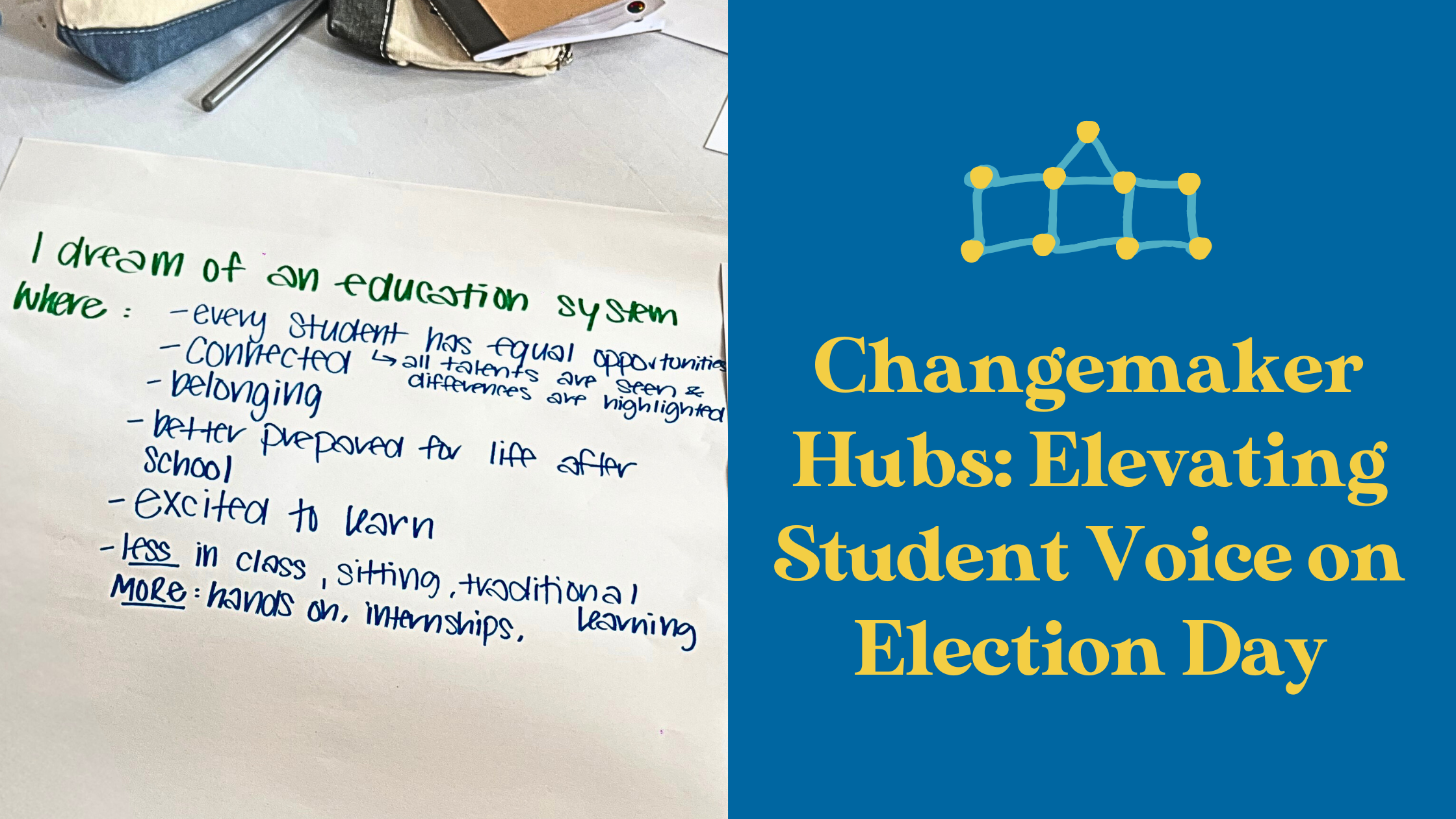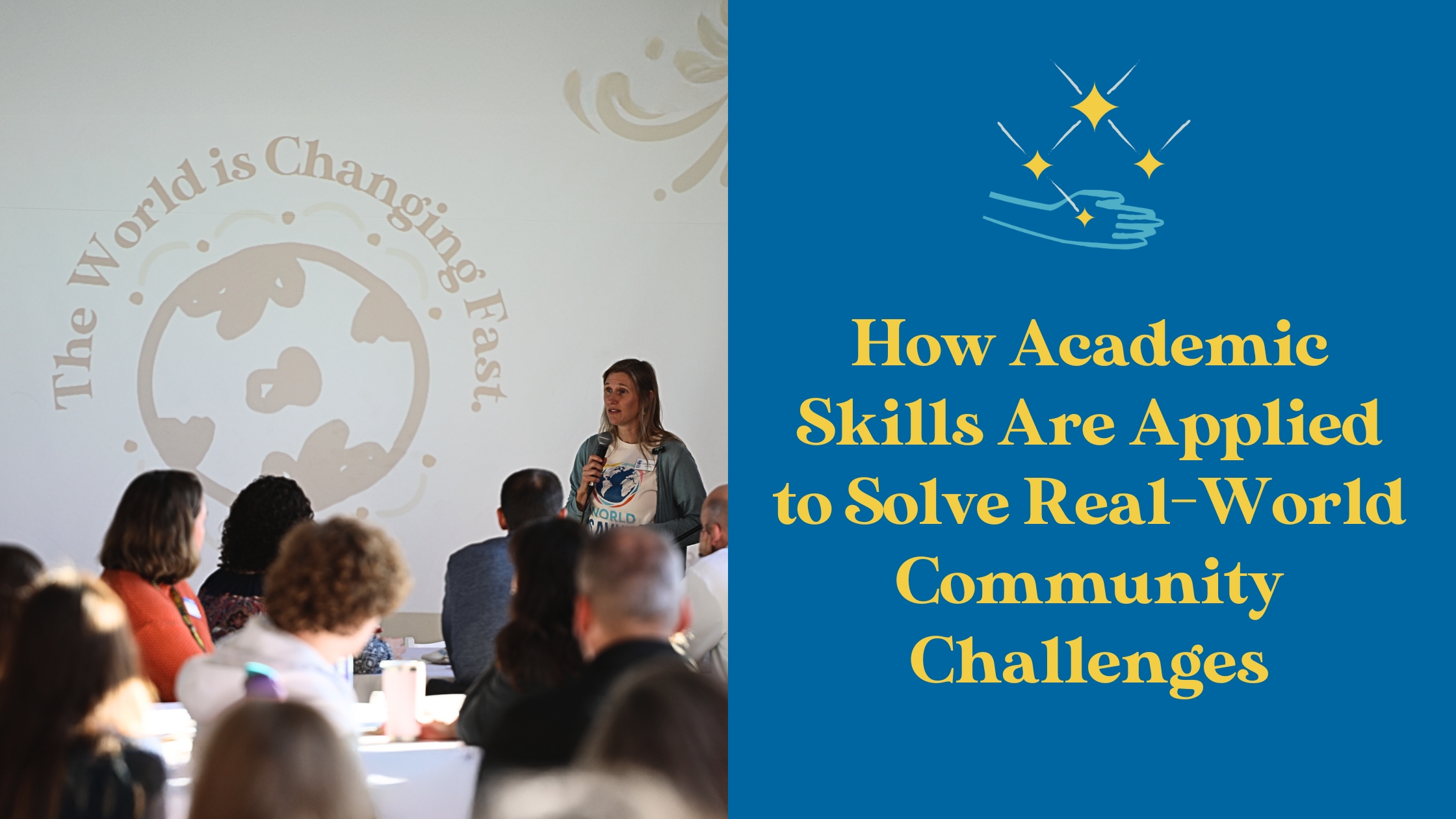On Election Day last Tuesday, as voters across the country cast ballots to shape the future of their communities, young people were speaking up for their own lives, communities and futures at a World Savvy Changemaker Hub. Spaces like the Changemaker Hub give students practice in the very skills that sustain healthy communities: empathy, communication, collaboration, and critical thinking. These are not abstract ideals. They are the durable skills that empower young people to engage fully in civic life and advocate for their future.
Beyond a Single Day
By embedding durable skills such as curiosity, adaptability, and empathy into education, we prepare young people not only to succeed but to participate meaningfully in democracy. At the Hub, students led by naming challenges and co-creating solutions alongside educators and community members.
At one Minnesota school, students built on past work they led with World Savvy to make their playground more accessible to all kids. This time, their focus was on recess, how to make it more enjoyable and inclusive for everyone. Their poster read:
“Our idea is to help recess be more enjoyable for everybody. We will do this by organizing the soccer field and making more choices for toys and equipment available.”
They didn’t stop there. Students mapped out an action plan that included service and philanthropy, recruiting volunteers to paint the soccer field and organizing a fundraiser to purchase new equipment. These ideas reflected what World Savvy’s approach is all about, turning empathy and collaboration into concrete steps for community improvement.
And when the day ended, the work did not. The ideas and energy carried forward into classrooms, staff meetings, and homes, fueling new questions and new approaches to teaching and learning that honor student voice.
Building community by embedding life skill
When education creates space for young people to use their voices, communities grow stronger. This Minnesota Changemaker Hub showed what happens when we connect learning to civic life: students see themselves as changemakers, not someday, but right now.
A single day of dialogue can spark a movement, because when students know their voices matter, they do not just imagine a better future. They help build it.
Learn more about how schools can embed these future-ready skills and how to support this work.

